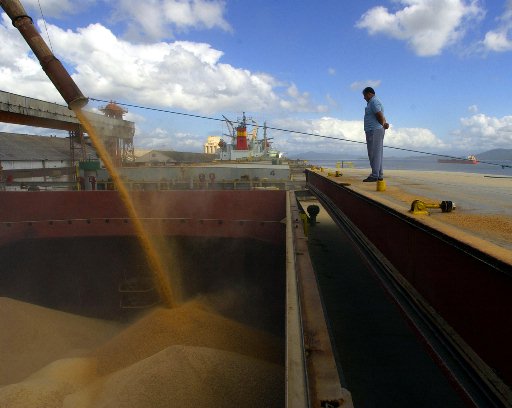
Agricultural News
U.S. Wheat Associates Welcomes WTO Elimination of Export Subsidies
Tue, 22 Dec 2015 13:31:04 CST
 U.S. Wheat Associates (USW), the export market development organization for the U.S. wheat industry, is very pleased with the recent decision by WTO members to eliminate agricultural export subsidies.
U.S. Wheat Associates (USW), the export market development organization for the U.S. wheat industry, is very pleased with the recent decision by WTO members to eliminate agricultural export subsidies.
Long banned for industrial goods, export subsidies are, along with guaranteed prices above world market levels and input subsidies, among the most harmful and distorting practices for world agricultural trade. Although the WTO already banned export subsidies for industrial goods, many member countries are still authorized to use agricultural export subsides. While authorized subsidies are rarely used anymore, agreeing to eliminate them is no small matter. For example, while the European Union, collectively the world's largest wheat producer, no longer uses export subsidies it still has standby authority to do so. Other countries are using unauthorized export subsidies and should be challenged to prevent continued violations of current disciplines. Certainly, eliminating export subsidy authority at once for developed countries and by the end of 2018 for developing countries is a major step forward for world wheat trade.
USW is concerned, however, that the Nairobi Ministerial also reauthorized developing and least developed countries' use of processing and transport subsidies for agricultural products, an authority that had expired in 2004. While this reauthorization is limited and temporary, it is still a step backward for agricultural trade similar to the setback of the 2013 Bali Declaration.
There were also changes in language affecting food aid and export credits, but our negotiators successfully defended U.S. practices in those areas. While further negotiations will take place on special safeguards and government food stockholding for developing and least developed countries, no commitment was made to continue the Doha Development Agenda as such, which we consider a positive outcome. It is long past time for countries to shelve the failed Doha negotiations and move on to more productive trade liberalization efforts to address the challenges of the 21st century.
USW's mission is to "develop, maintain, and expand international markets to enhance the profitability of U.S. wheat producers and their customers." USW activities in more than 100 countries are made possible through producer checkoff dollars managed by 18 state wheat commissions and cost-share funding provided by USDA/Foreign Agricultural Service. USW maintains 17 offices strategically located around the world to help wheat buyers, millers, bakers, wheat food processors and government officials understand the quality, value and reliability of all six classes of U.S. wheat.
WebReadyTM Powered by WireReady® NSI
Top Agricultural News
More Headlines...




















